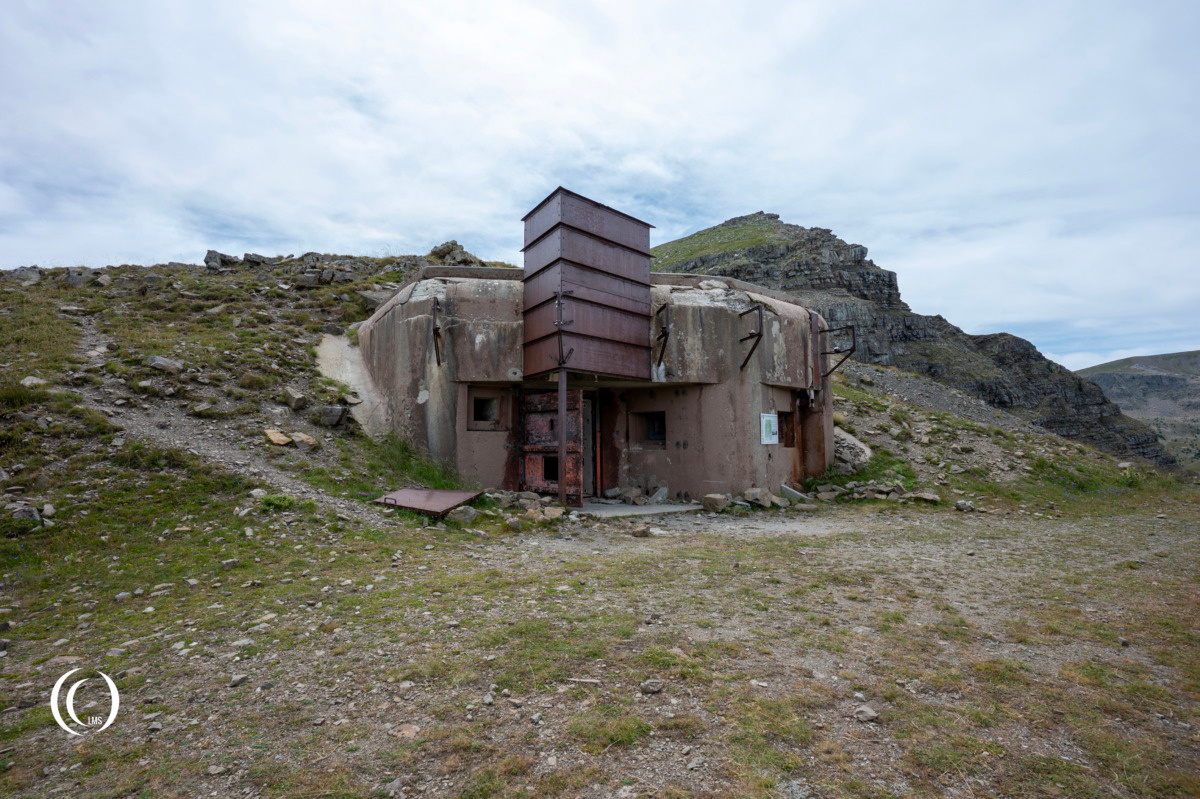
Located at an altitude of 2,440 meters at the Col de la Moutière this Petit Ouvrage of the Maginot’s Alpine Line had the purpose of defending the right flank of the works at Restefond and preventing a bypass through the Moutière valley. The lesser work is a small infantry structure consisting of three infantry blocks and a chimney block that also functions as an emergency exit. The position is connected to the Restefond pass by a 3.5 km long track.
PO La Moutière actually lies on the border between the departments of Alpes-de-Haute-Provence and Alpes-Maritimes, but because its barracks and supporting structures are mainly located on the side of the first mentioned, we chose this departement for the title.
Construction
The plans for Ouvrage La Moutière were validated at the end of 1929, although the designs were regularly altered even after the construction started in 1931. In the original plan a fourth infantry block was included, but this will never be built. At the start of the mobilisation of France in 1939, the work was in its last phase of construction.
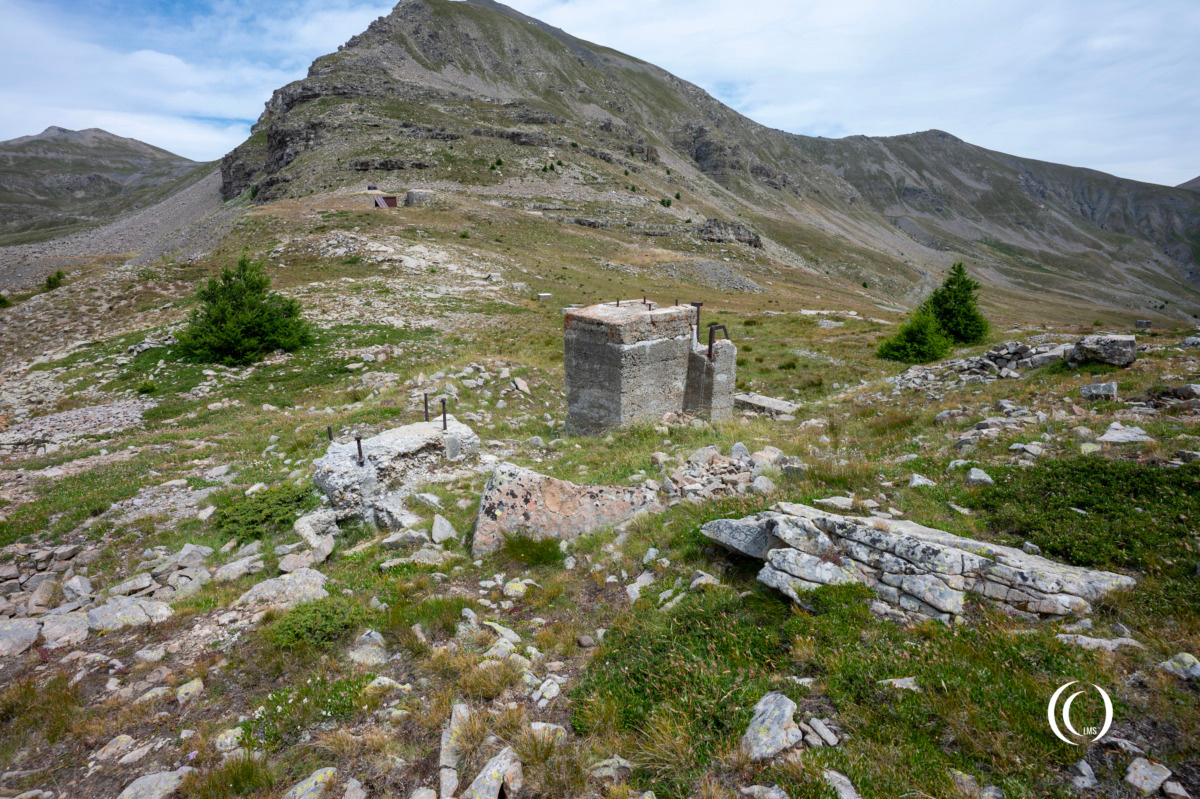
Because the construction site is not accessible by road, a cable car was set up to transport the materials and equipment necessary for its construction from the Restefond structure. The remains of the cable car and transport line are still visible on the site as you can see in the picture above.
The First Battle of the Alps – 1940
During the Italian Invasion of France in June 1940, also known as the First Battle of the Alps, PO La Moutière was manned by soldiers of the second company of the 73rd Alpine Fortress Battalion (BAF) under the command of Lieutenant Taxil. In total the crew was composed of an officer, two NCO’s and 40 troops. These men were especially trained to man the Alpine Line defenses.
The work doesn’t have any known part in the events between 16 and 25 June 1940.
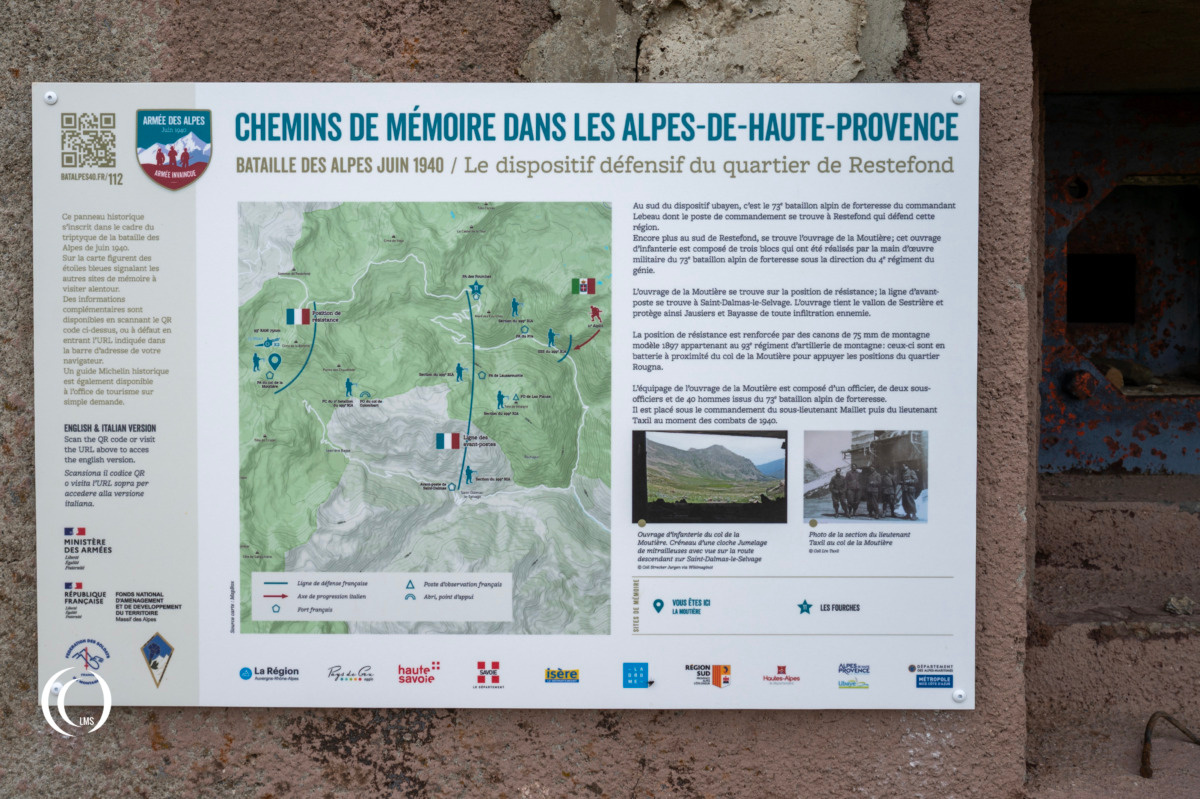
Block 1 – Entrance
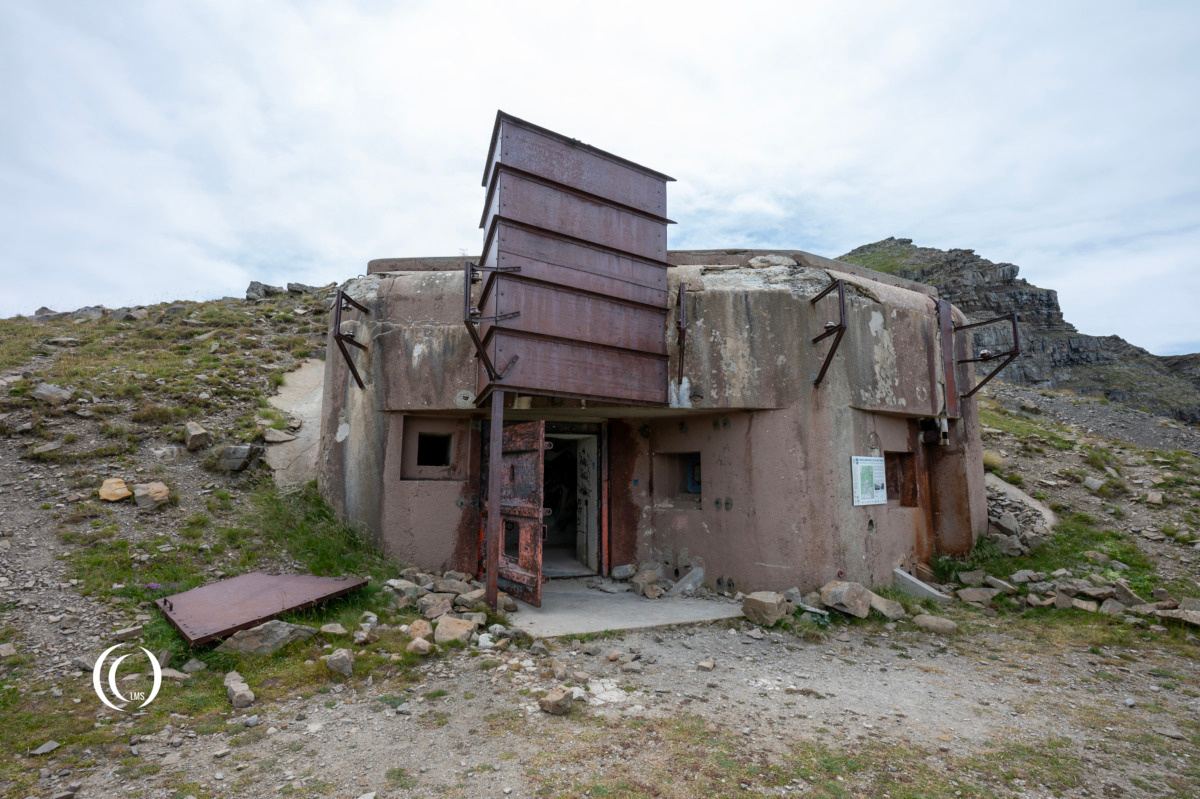
This entrance block has a separate combat room with two MG (FM) stands and a large staircase leading to a lower level that connects to the subterranean galleries of the work. It also has a grenade chute underneath the outward focused MG embrasure.
Block 1 was equipped with an ER-50 Watt wireless radiotelegraph (TSF) for communication with the other works. The metal brackets above the front facade are mounts for the antenna wire.
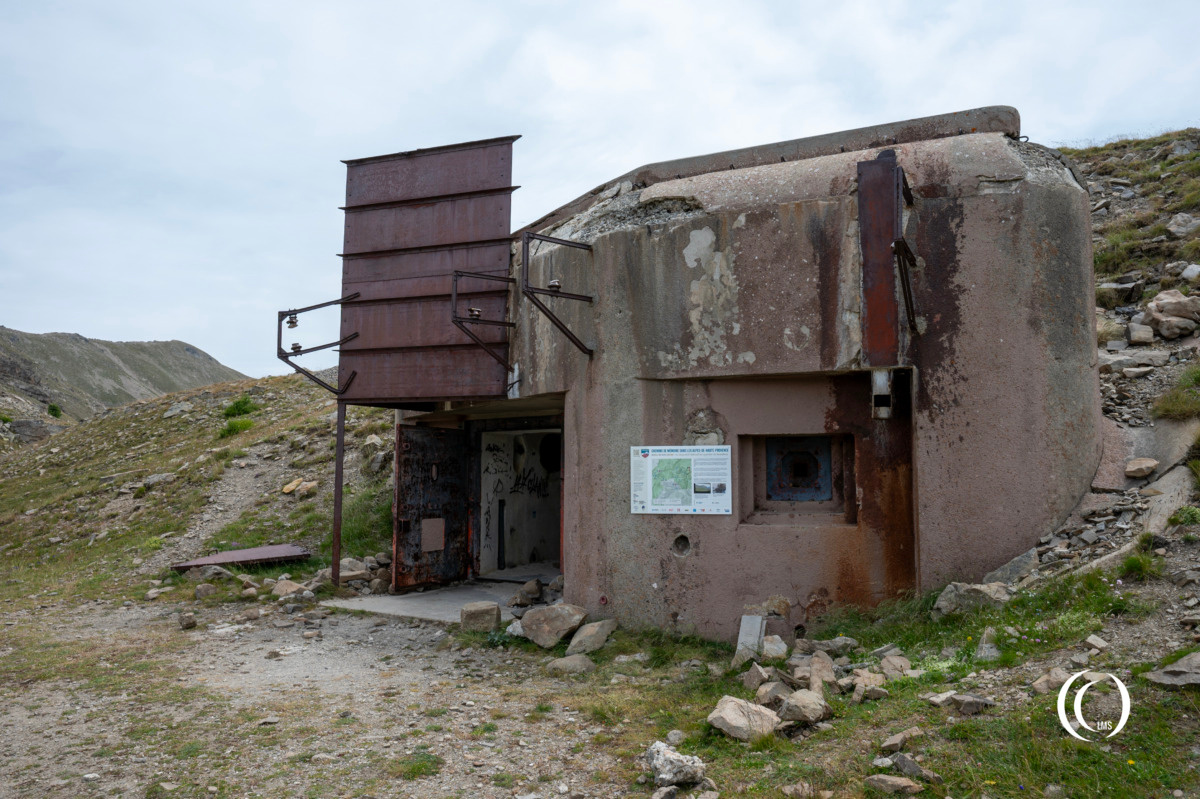
Due to the difficult winter conditions in the mountains, the entrance blocks and emergency exits were equipped with metal “snow collars” allowing passage in case of heavy snow. These were common on many of the other works of the Alpine Line in this section, like Ouvrage Col de Restefond and Ouvrage des Granges Communes. Block 1 of La Moutière is one of the few that can still display this feature today.


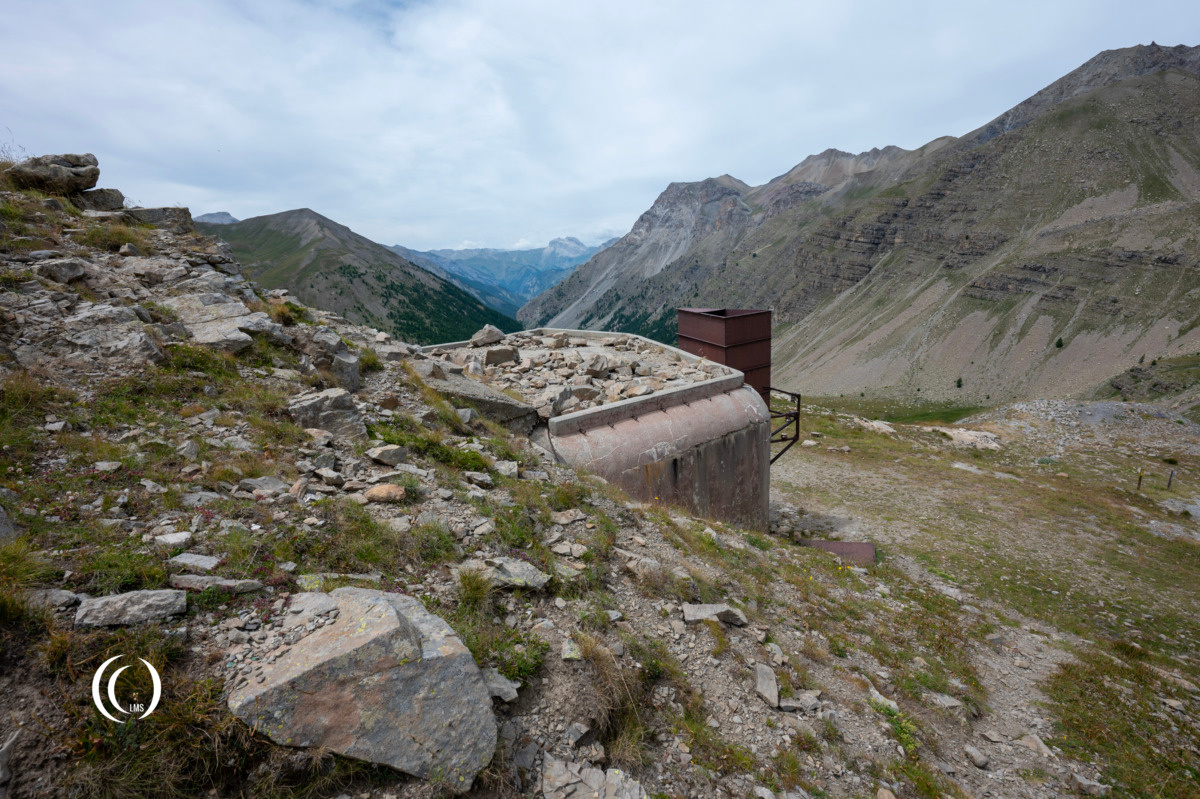
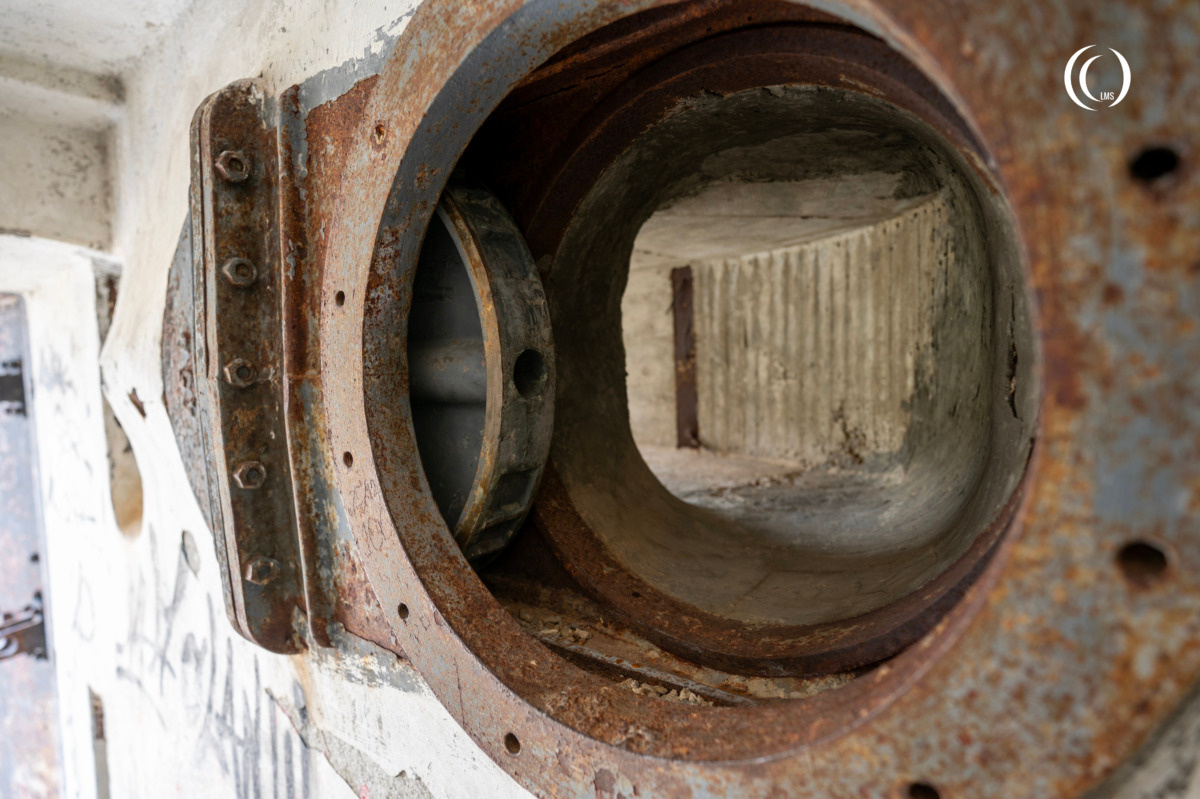
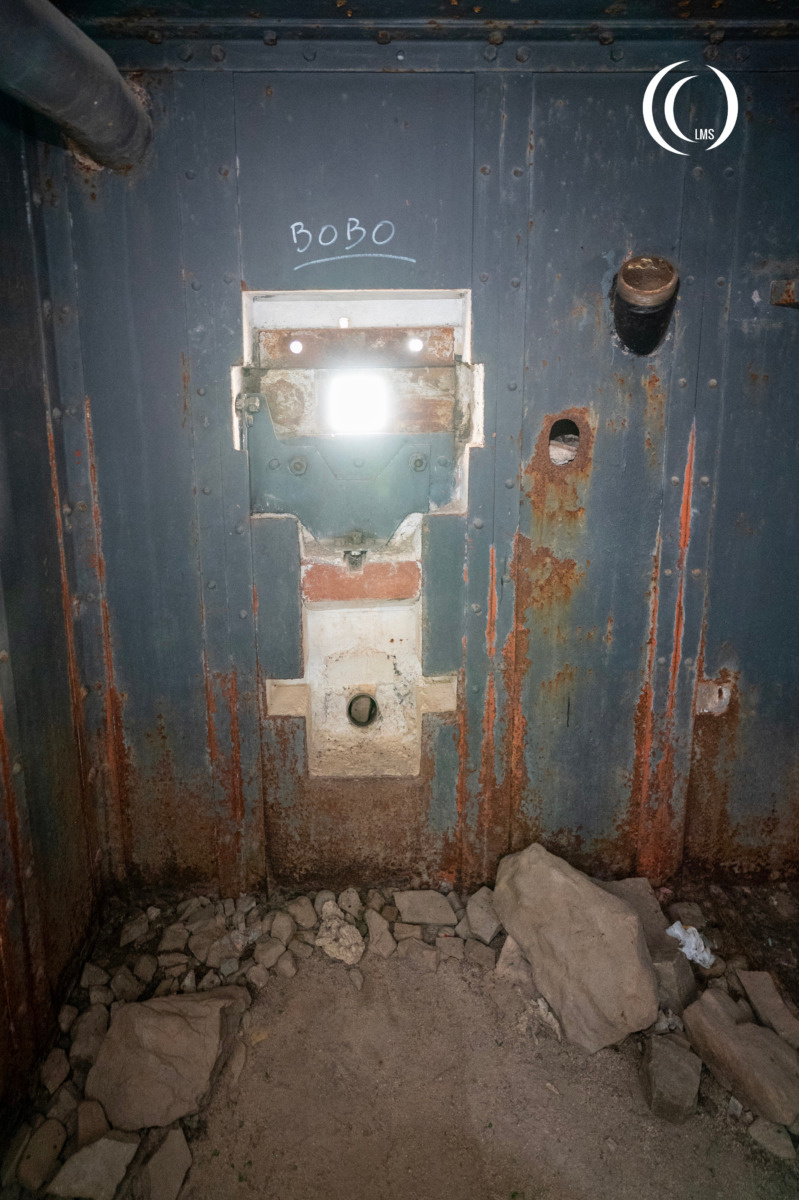
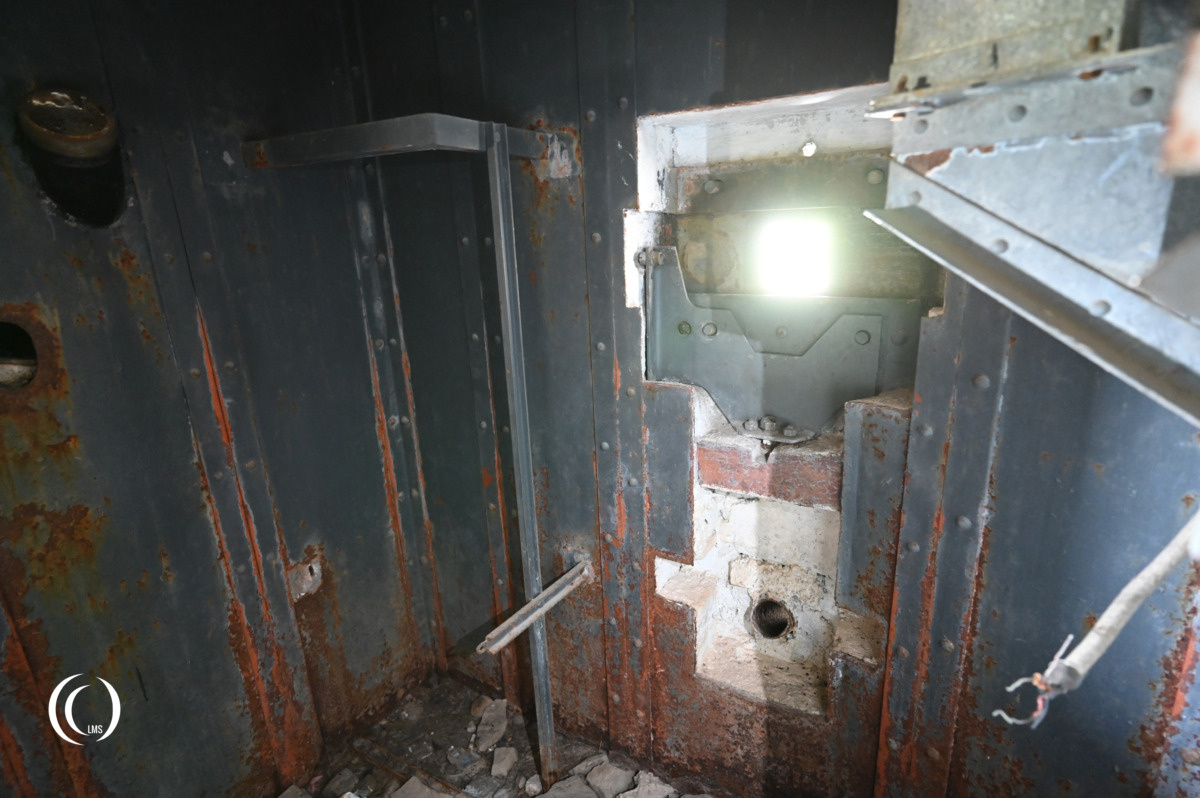
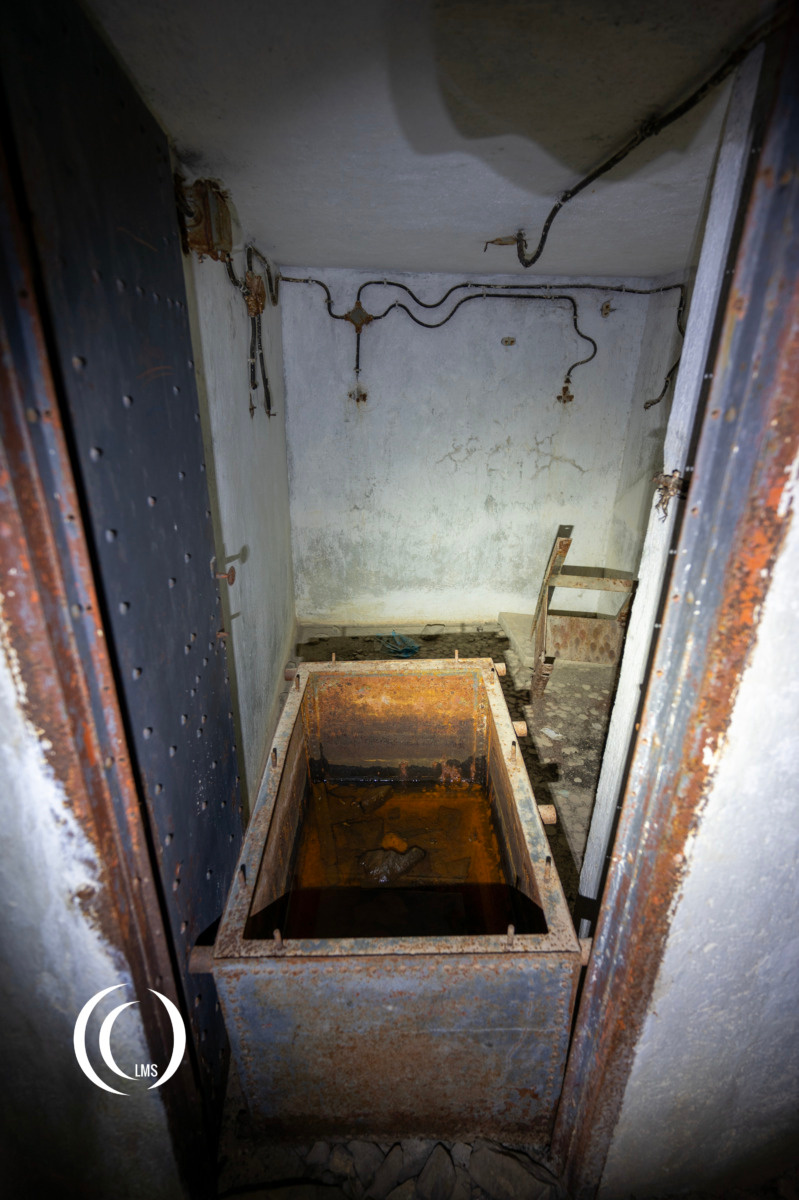
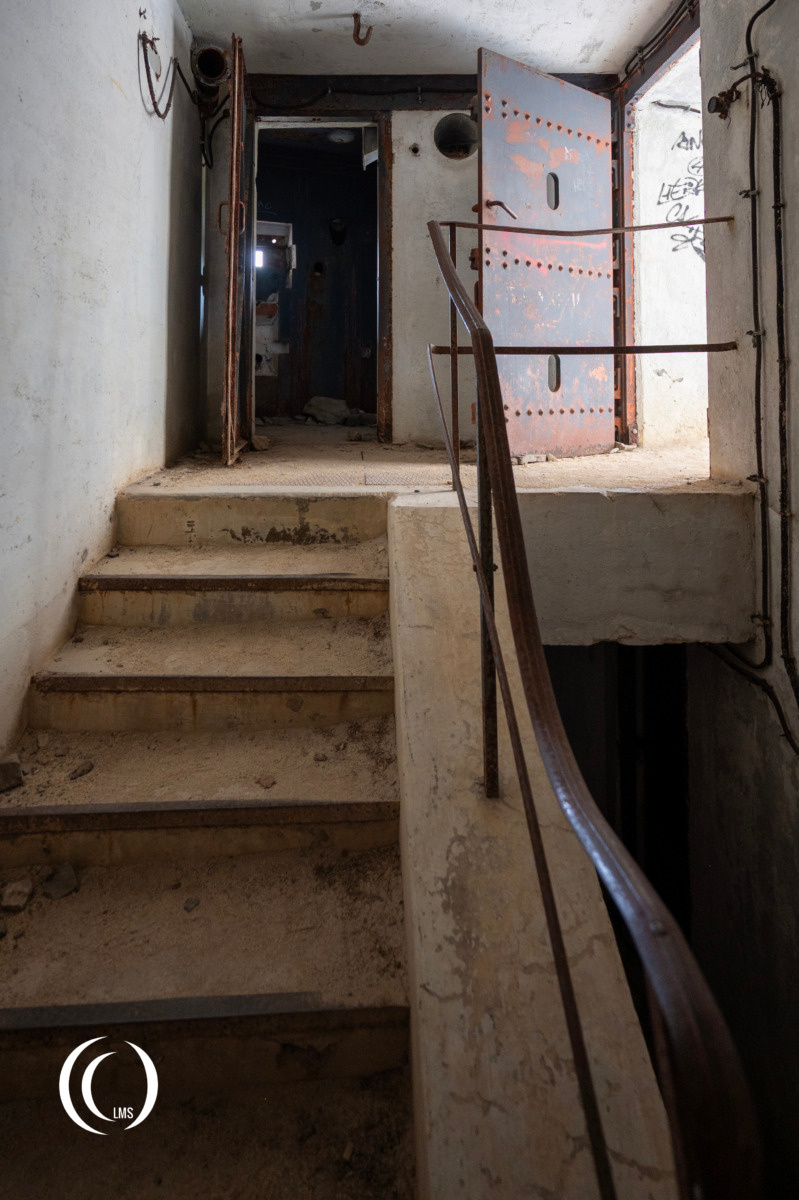
Block 2 – Infantry casemate
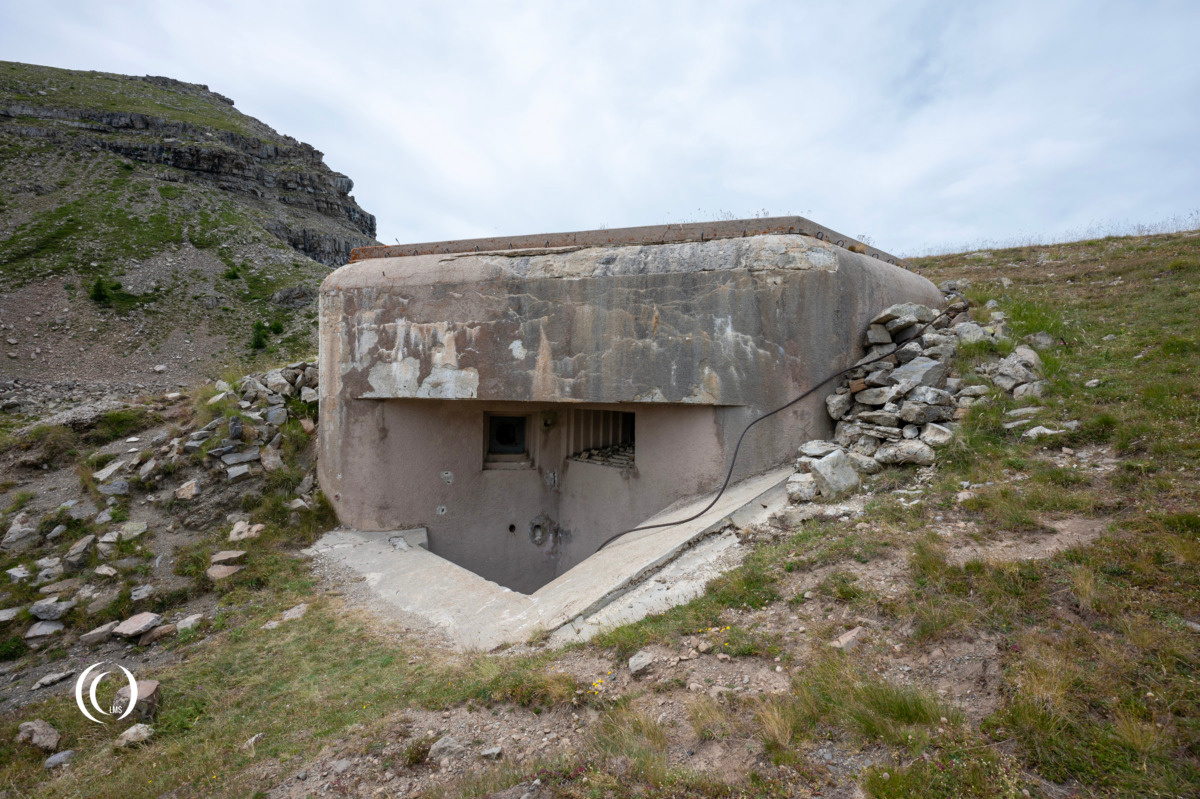
Although not preferred by later Maginot Line standards, this is a frontal combat block. Like block 1 it also has a lower level of which the lay-out is very similar to. The casemate has a JM and a FM machine gun slot facing East towards the Sestrière valley in the direction of Col de Colombart and Saint-Dalmas-le-Selvage. A grenade chute is located underneath the JM embrasure. The block also has a small but deep diamond ditch with an escape exit at the bottom.
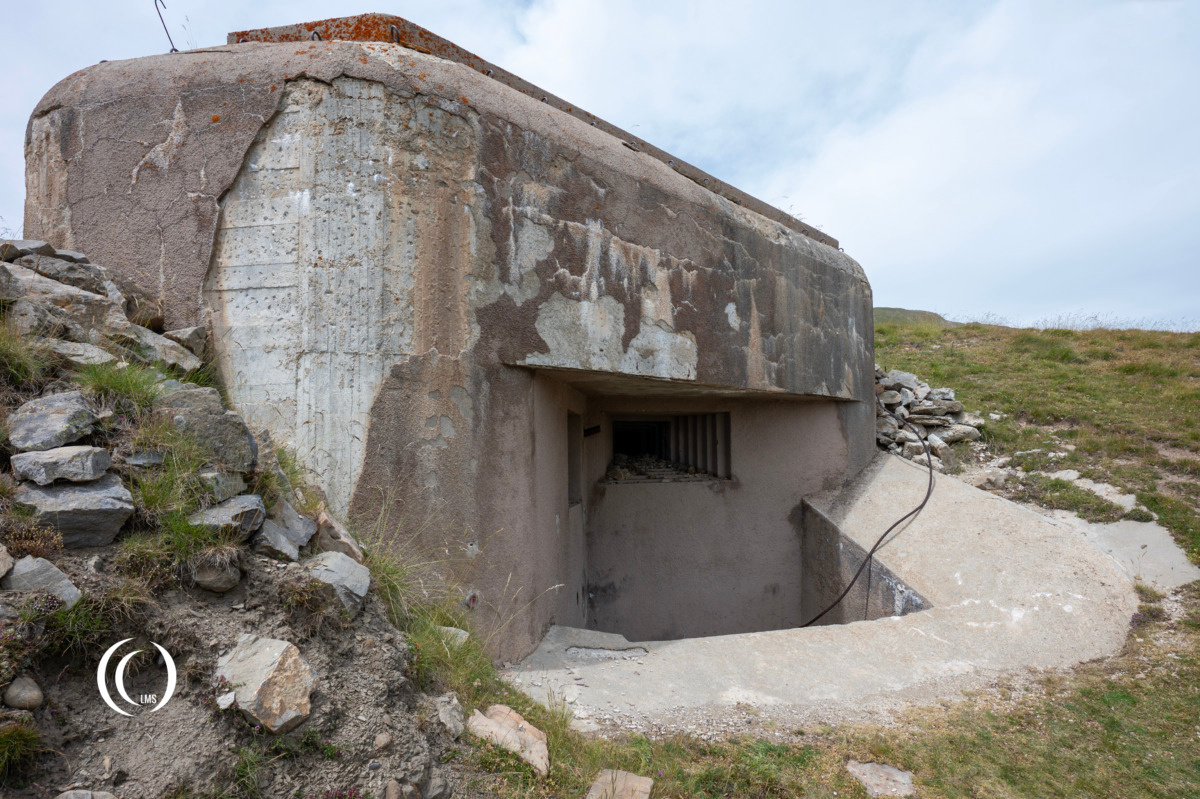

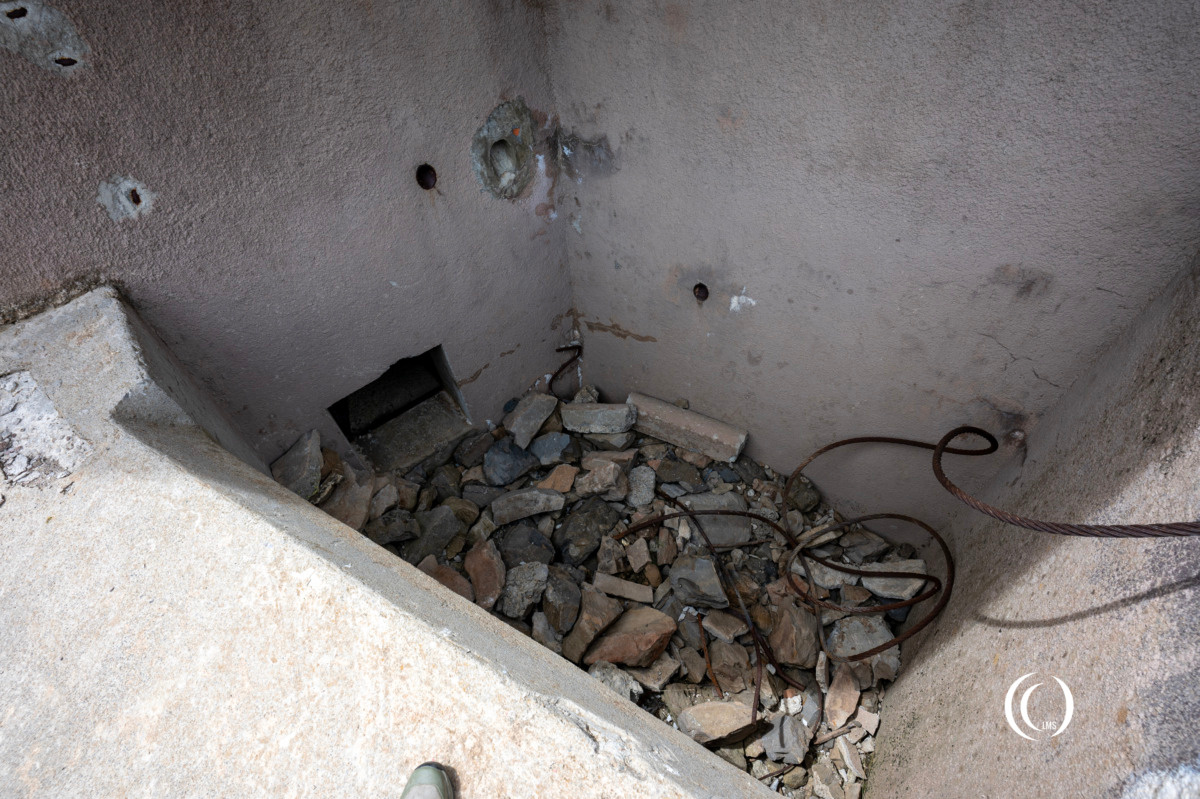
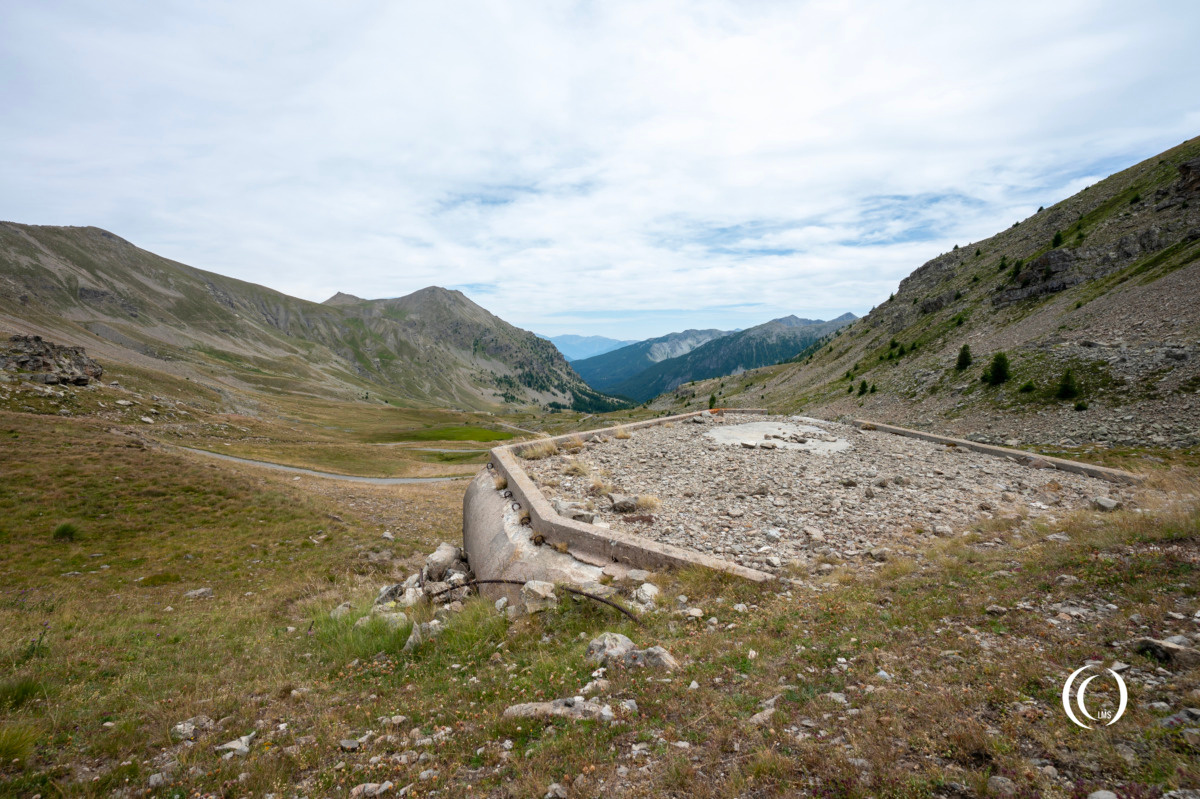
Block 3 – Observatory
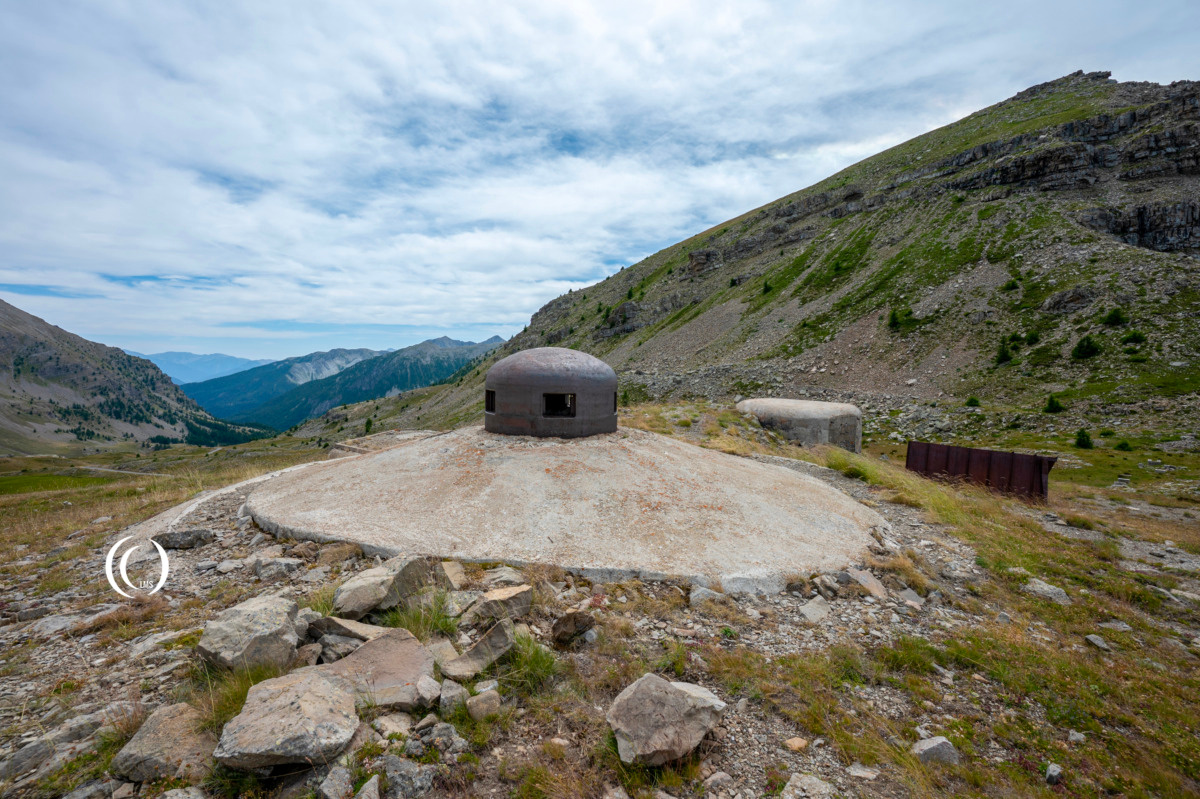
Block 3 is located at the highest point of the work in between blocks 1 and 2. The block has a GFM bell type A suited for a periscope, machine gun and 50mm mortar.
From its observatory cloche its crew had a clear view of the valleys to the East and to the West including the works at Restefond.
Unfortunately the stairs leading up from the underground tunnel system have been removed.
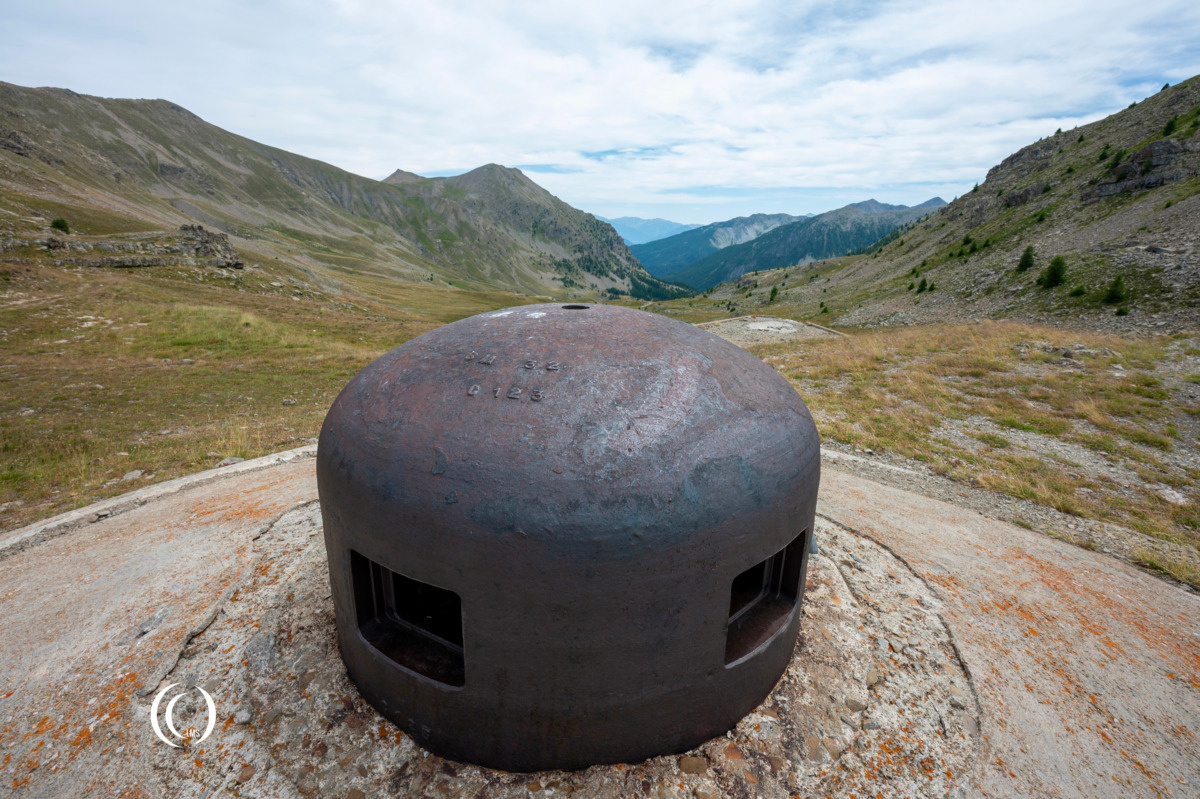
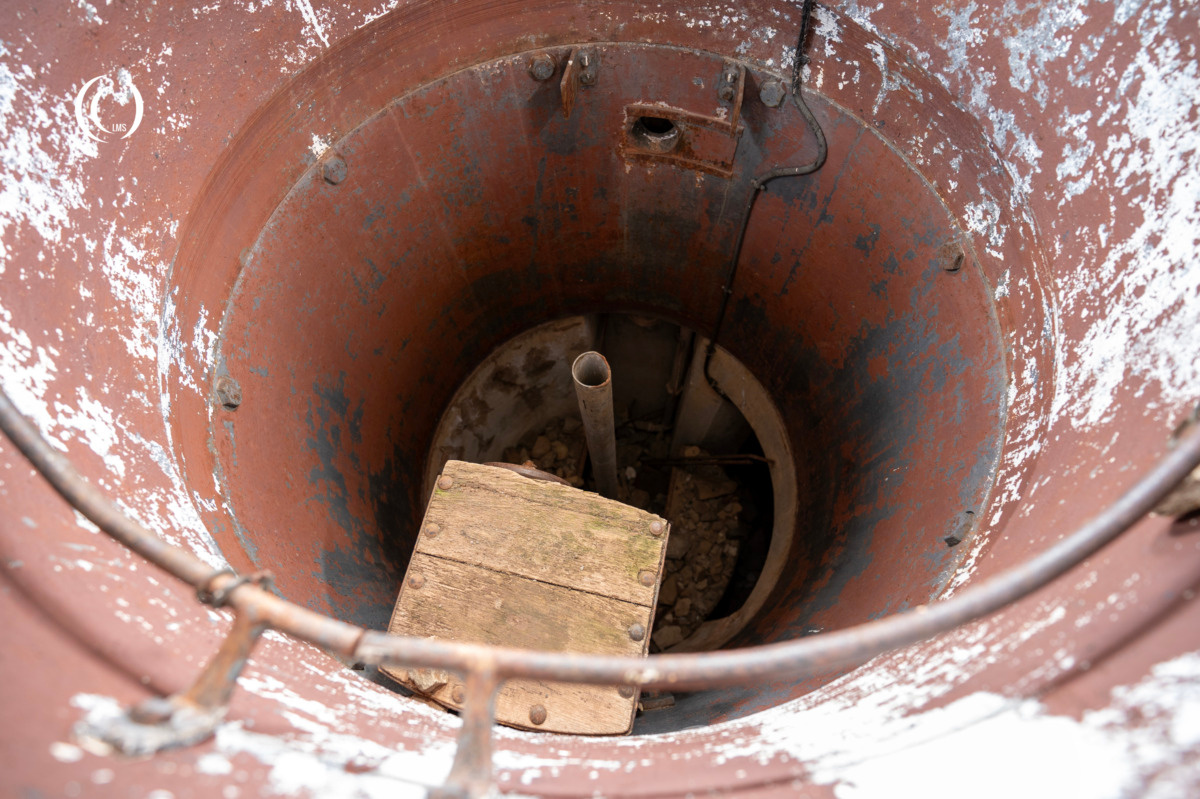
Block 4 – Chimney
This is an undefended chimney block that could also be used as an emergency exit. The chimney had a similar snow collar installed as Block 1. The metal device still lies in front of the chimney block.
The ladder inside the block has been cut away.

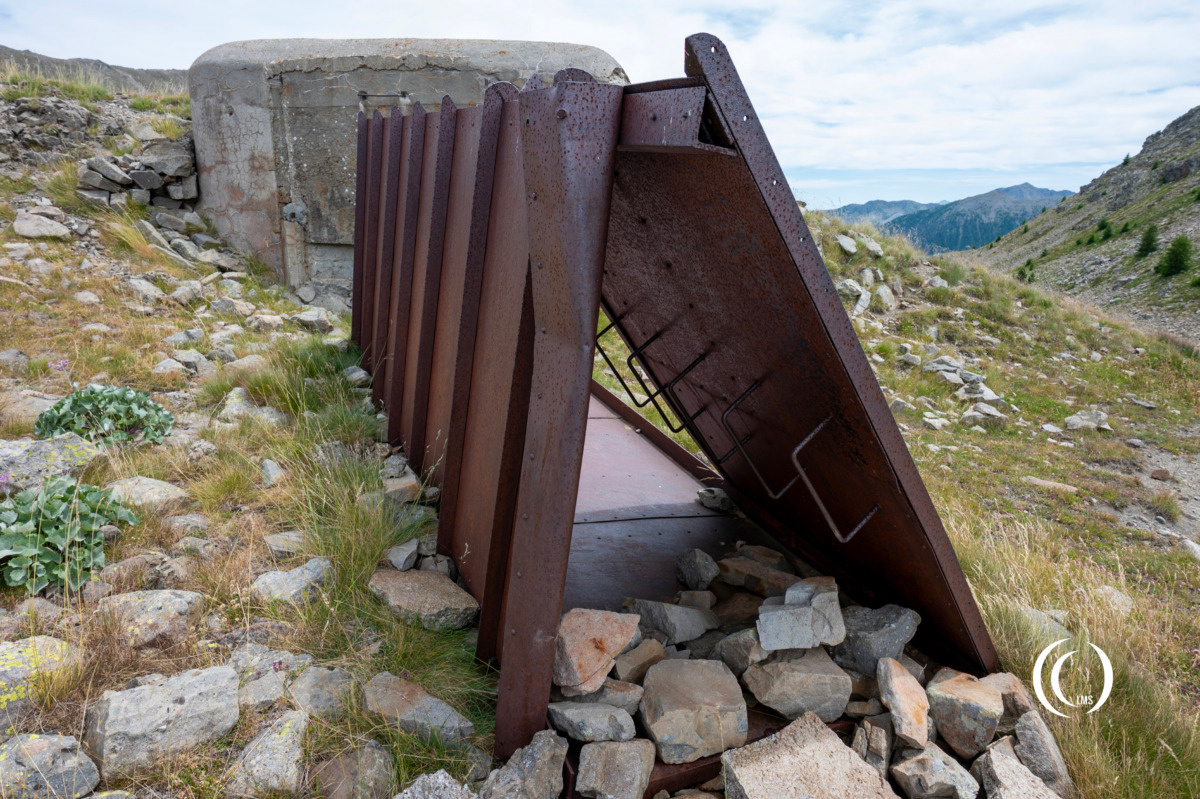
Underground structure
The underground structure of PO La Moutière consists of three parallel galleries which house the ammunition supplies, barracks, kitchen, latrine and power station. In the latter there were two diesel powered generator sets which provided the necessary energy.
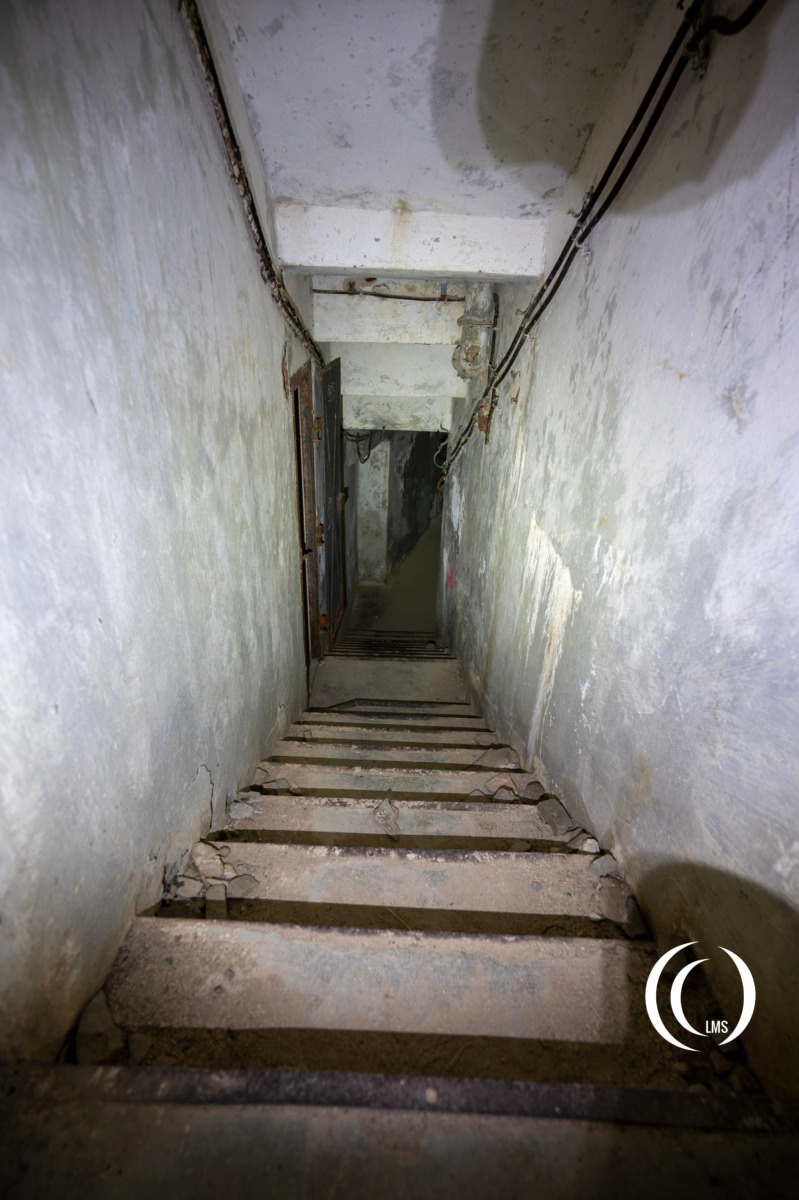

Visit
You can visit Petit Ouvrage La Moutière when you follow the unpaved track from Col de Restefond into the Ravin de Restefond (closed during winter months) or via paved road from Saint Dalmas le Selvage to the Col de la Moutière.
Excellent article yet again. You have a knack for illuminated history.
Thank you Mark